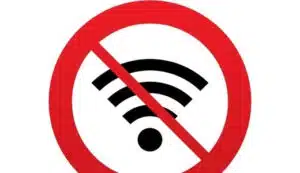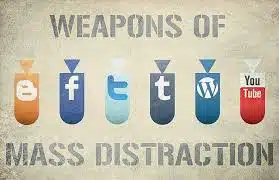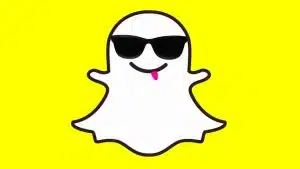Can social media and addiction really be linked?
Upon googling the term ‘addicted”, this was the definition that appeared: to be physically and mentally dependent on a particular substance, and unable to stop taking it without incurring adverse effects. Many people are probably thinking, no way am I addicted to social media.
Addiction is something we as a society have come to associate with alcohol, drugs, food, gambling and other activities that can cause harm. Sure, we may waste time on Facebook and snapchat, but no one starts convulsing on the floor and being rushed to the ER from Instagram withdrawal.
![]()
As I think about my own experiences with social media, I focus on the terms ‘dependency’ and ‘unable to stop’. There were all those nights in the library at Barnard, where I sat for hours diligently in my little cubicle scrolling through Facebook.
Then, there are all the times I am sitting on the subway (when I am lucky enough for transit wireless to connect) or in a waiting area for an appointment, just loading and reloading my Instagram. But it is all innocent and fun, I am not addicted! What else would I do while I wait?
But then, comes the familiar moment of panic, ‘Oh no, the wifi has disconnected’. We have all been there, now it is time to angrily refresh, and reconnect to the wifi. Only, sometimes, the network cannot reconnect, and that is when the anxiety seeps in. ‘Oh, no, Oh no’ ,and our hands are besides themselves. What will they do now that they cannot scroll?
‘Phew’, the wifi is back, but by this point you may have been off the grid for at least 20 minutes. Faster than the speed of light, and swifter than a blink, Facebook, Instagram and Snapchat are once more opened. Let’s be honest, you did not miss anything on any platform. The girl who posts selfies posted another one, a cupcake that looks like Elmo was just Instagrammed and your friend snapchatted you his pug wearing a beanie. But still, this warm sense of comfort blankets you, and the uneasiness you felt washes away, as you can now leisurely wait. Hmm, now I ask again, can social media and addiction be connected?
Social Media and ADHD
While anyone can engage in addictive social media behaviors, individuals with ADHD may be more susceptible to it. People with ADHD, a brain disorder characterized by hyperactivity, impulsivity and inattention, are more likely to become addicted to substances such as drugs or alcohol.
Addiction is quite common in people with ADHD because these substances provide relief when their ADHD symptoms cause problems at school, work and with interpersonal relationships . People with ADHD, in their everyday life, can manage their symptoms and their disorder can remain unnoticed. However, it is when they are required to complete a long or boring tasks or complete multiple tasks at the same time, that the symptoms can cause impairments.
Research on ADHD and social media addiction
One study, which looked at adults (ages 16-88) found that there was a strong correlation between ADHD and “social media addiction”. There are many reasons why ADHD can cause addictive behavior towards social media including how it can make people feel better and distract them from a real issue. Social media notifications and texts can constantly cause a smart phone to beep, vibrate and essentially blow up. People with ADHD, who are more likely to get distracted, can become vulnerable to this escape.
People with ADHD can start to check their social media accounts in a compulsive manner anytime they cannot focus or feel bored with a task. Not everyone with ADHD is addicted to social media and not everyone who uses social media in an addictive manner has ADHD. But people with ADHD, who are more likely to engage in addictive behaviors and are more likely to be distracted, should be aware of their social media usage.
Dangers of the snapchat streak
Every person, regardless of any condition he or she may have, can find it helpful to take a step back from social media and ask, “Am I using it excessively?”.
The other day, I was busy and forgot to snapchat back my cousin, and we lost our 21 day long snapchat streak. A snapchat streak occurs when two people “snap” each other consecutively every 24 hours. My cousin angrily texted me “You ruined our streak” and I noticed in our conversation she actually appeared distressed that we lost our snapchat streak.
Snapchat streaks were created as a fun way to connect with friends but the pressure to upkeep them can cause addictive and compulsive tendencies.
Tips to manage social media and addiction:
1)Keep your notifications off! Especially if you need to have a few hours to concentrate on a specific task, turn your social media notifications off. Don’t let the buzzing and vibrations disrupt your flow.
2)Download applications on your phone and computers to prevent you from accessing your social media accounts if you have a lot to get done. For example, ‘Self Control” can be downloaded on a computer and can block various sites.
3) Bring a book to read, ear phones or a coloring book to doodle in while waiting in any situation.
4)If you are in your house for the day, make a to-do list of the things you wanted to accomplish. After you check off one or two boxes, you can allot yourself some time to go on social media and relax.
5)LIVE IN THE MOMENT! Of course if you are at the beach or at a party with your friends, it’s fun to snapchat and keep other people in the loop of what you are doing. But do not forget to enjoy the experience instead of just sharing it.
Work Cited
Andreassen, C. S., Billieux, J., Griffiths, M. D., Kuss, D. J., Demetrovics, Z., Mazzoni, E., & Pallesen, S. (2016). The relationship between addictive use of social media and video games and symptoms of psychiatric disorders: A large-scale cross-sectional study. Psychology of Addictive Behaviors, 30(2), 252.
https://www.addictioncenter.com/addiction/adhd/



